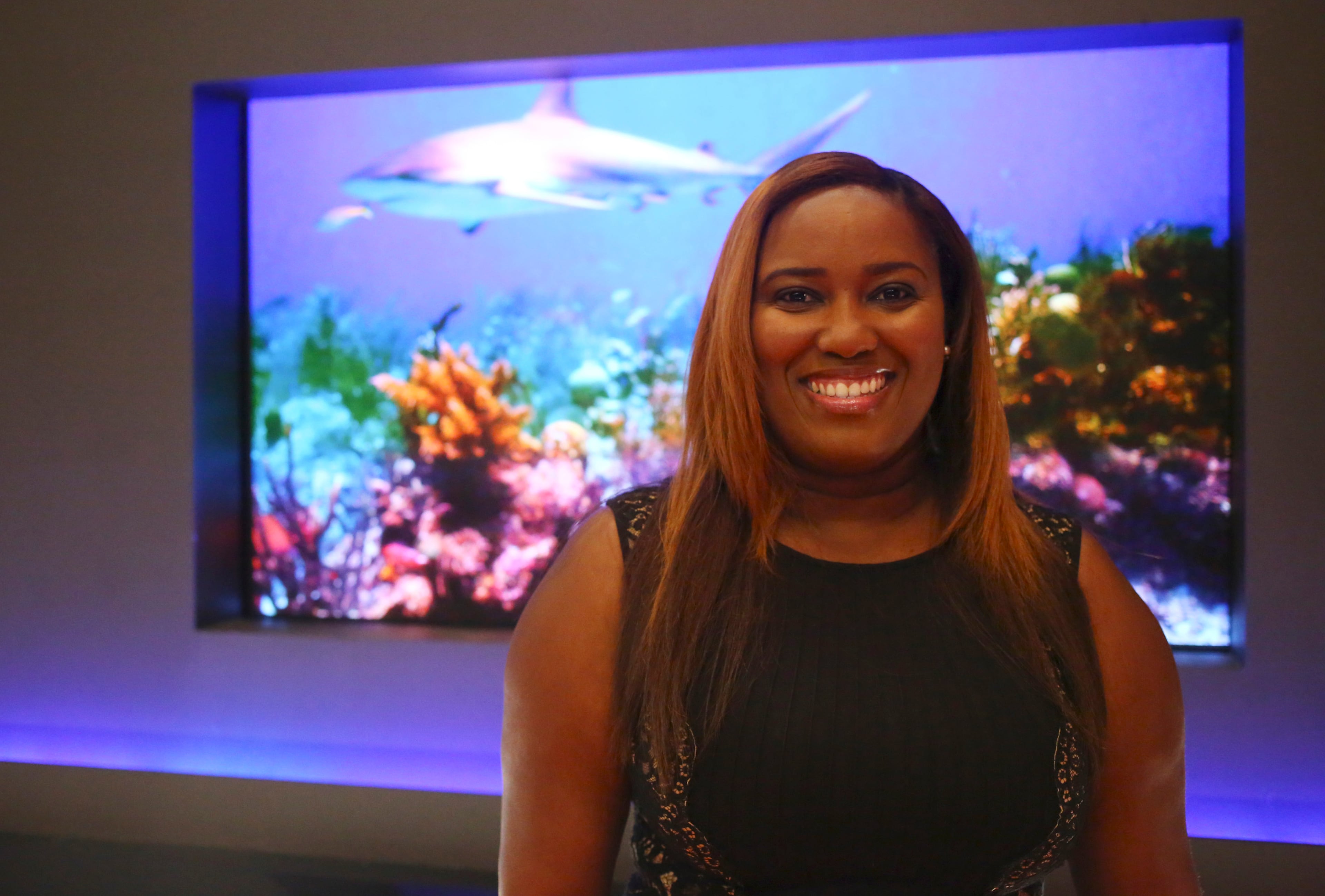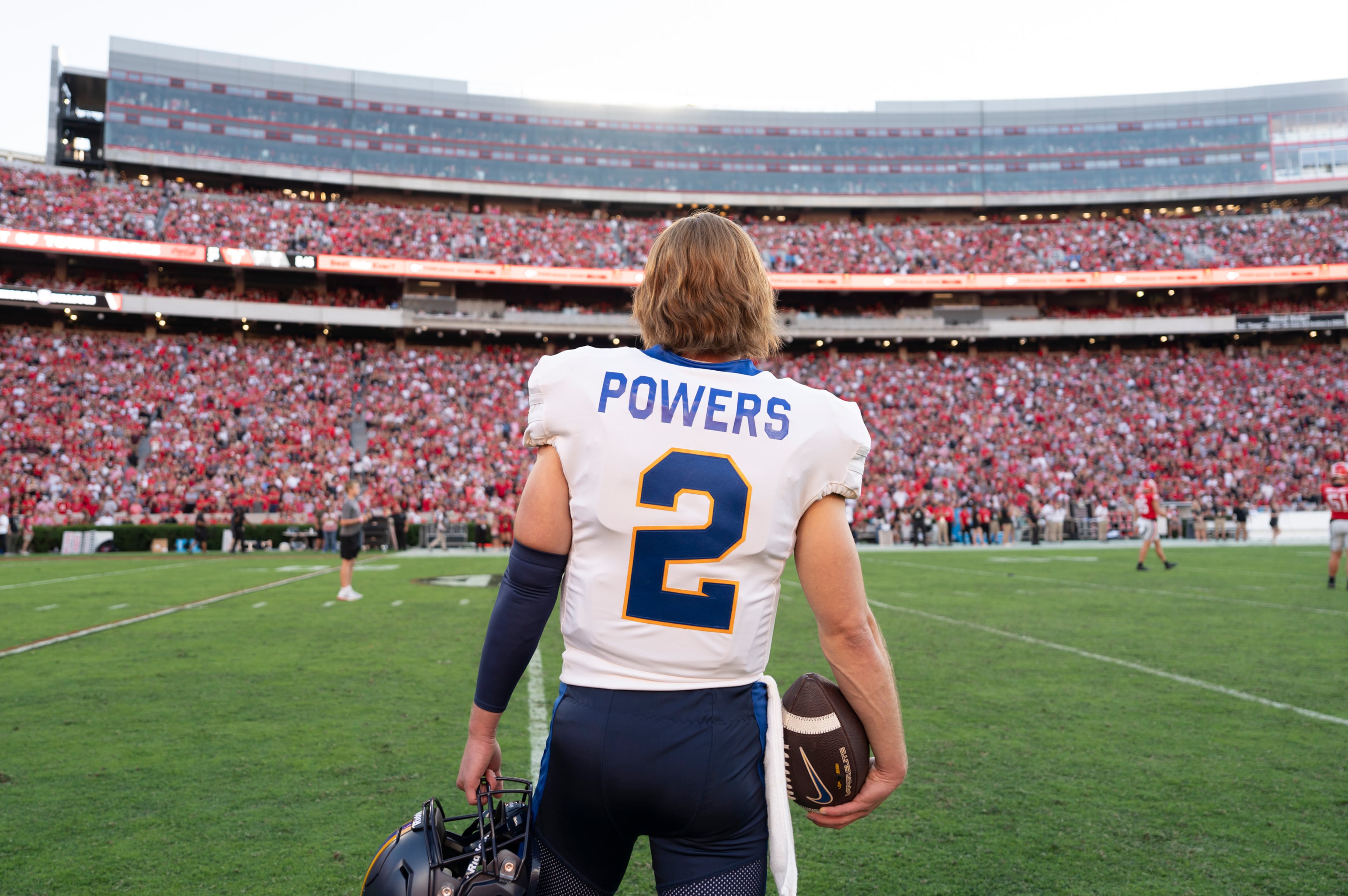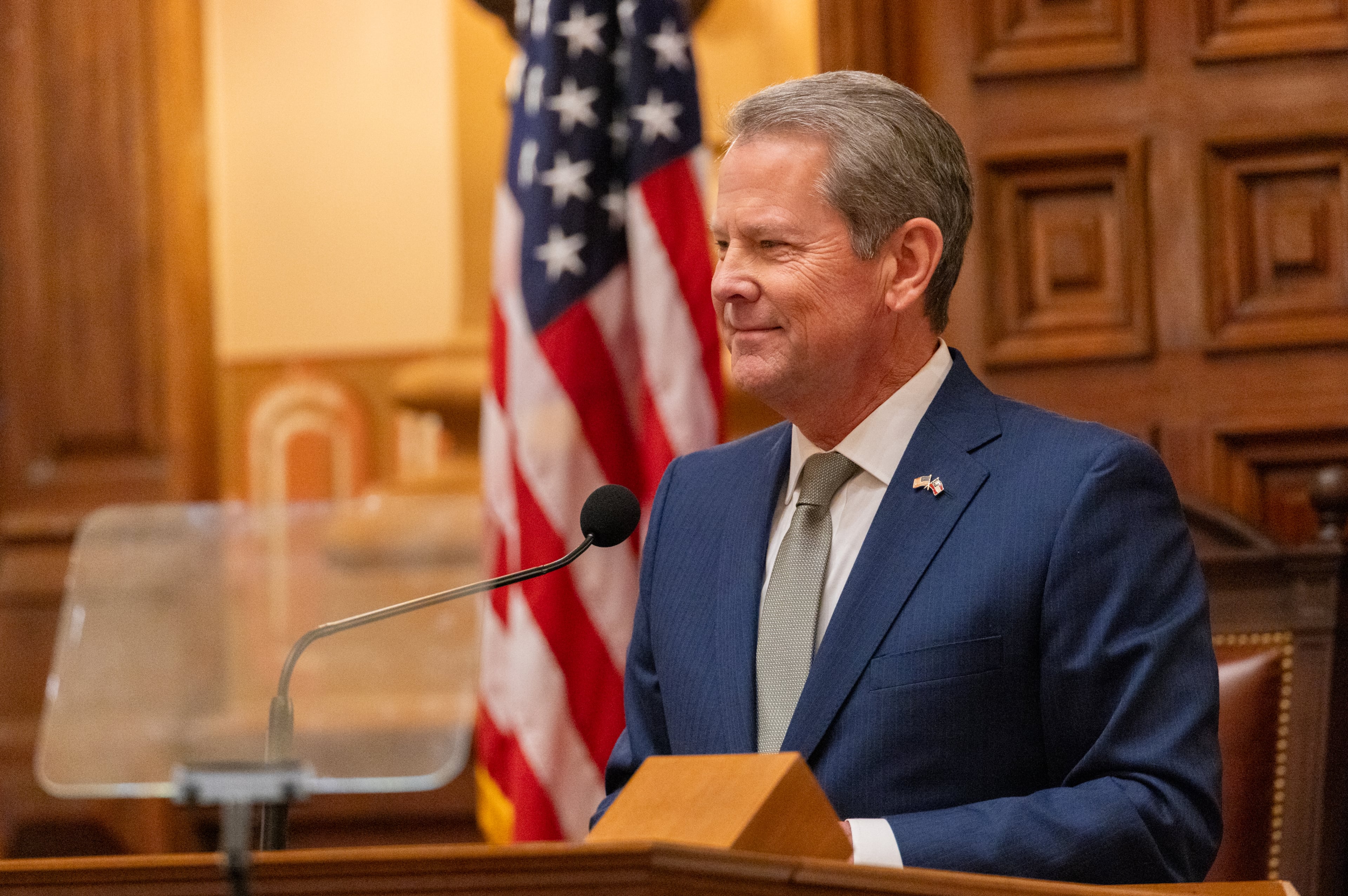Life after ‘Shark Tank’: 7 Atlanta entrepreneurs embrace the show’s impact

“Shark Tank” seems like the quintessential American show: It celebrates plucky entrepreneurs trying to get money from already successful business people. There are spirited pitches and tough negotiations. Every episode features winners and losers.
Yet, it’s effectively an import: ABC in 2009 based “Shark Tank” on Britain’s “Dragons’ Den” and Japan’s “The Tigers of Money.” Now, 16 years later, the show is still going strong. The season finale airs Friday, and a 17th season is already cleared.
“There are so many elements that connect with viewers,” said Clay Newbill, a show producer since day one. “There’s the wish fulfillment aspect based on merit. With the right idea, grit and determination, you can achieve your dream.”
The chemistry among the Shark Tank “sharks” over the years have also been a key part of the show’s appeal: the over-the-top boastings of Kevin “Mr. Wonderful” O’Leary, the warmth of “Queen of QVC” Lori Greiner, the no-nonsense approach of tech and media mogul Mark Cuban and FUBU founder Daymond John, the bluntness of Barbara Corcoran and the kindness of Robert Herjavec.
The Atlanta Journal-Constitution has covered many of the Atlanta-based inventors going back to season 1. We checked in on several of them to see what impact the show has had on their lives and businesses.

Lori Lite, Stress Free Kids, season 1
Business concept: A line of books that use stress-relieving techniques to help kids sleep
Residence: Marietta
Appeared: Aug. 23, 2009
“Shark Tank” result: accepted Corcoran’s offer of $250,000 for 50% equity
What happened afterward: The show was new, so she had no clue what a good deal was. Corcoran’s offer “knocked me off my feet,” Lite said. “But I knew the chance of getting on air was far greater if I said yes. So I did.” The deal would only kick in if Lite used Corcoran’s money, so she chose not to. Sales of her books improved after her episode aired, and Scholastic signed her up to write more books. For a time, she became a Twitter influencer. Her husband, Rick, started a Stress Free Book Marketing company to help self-published authors.
What “Shark Tank” meant to her: “The exposure is amazing. But I thought I’d make millions selling my books. I did not. That’s the industry and the product I was selling.” On the bright side, she said she was ahead of her time in terms of self-publishing and promoting mindfulness before apps like Calm took over.

Diamond Dallas Page, DDP Yoga, season 5
Business concept: A fitness program based on yoga developed by the former pro wrestler that helped him recuperate from a back injury and stay in the ring for many more years.
Residence: formerly Atlanta, now Panama City, Florida
Appeared: Feb. 21, 2014
“Shark Tank” result: No bites
What happened afterward: At the time of the show, he and his business partner, Steven Yu, were selling books and DVDs. They pivoted to a workout app by 2015 that now has more than 40,000 subscribers.
What “Shark Tank” meant to him: “We didn’t get the deal, but ‘Shark Tank’ gave us more credibility. Viewers got to hear our stories. For me, this wasn’t about making money. It’s been about inspiring people and changing lives, like disabled veteran Arthur Boorman, who was able to walk again after working our program.”

Erica Barrett, Southern Culture Artisan Foods, season 5
Business concept: Specialty pancake and waffle mixes
Residence: Atlanta, Phoenix, Washington D.C.
Appeared: Feb. 21, 2014
“Shark Tank” result: $100,000 offer for 28% equity from Corcoran that never closed
What happened afterward: Although the deal with Corcoran fell through, Barrett was able to nab a private investor. She went to culinary school, became a chef and made appearances on CNBC‘s “The Profit” and multiple Food Network shows, winning “BBQ Brawl” hosted by Bobby Flay last year. Besides Southern Culture Artisan Foods, she also makes money developing food products for other companies. She also started pizza business Dough Boy with multiple franchise locations, including South DeKalb Mall.
What “Shark Tank” meant to her: “It was life-changing. It’s one of the best shows to do for someone like me. I call ‘Shark Tank’ the gift that keeps on giving. I’m now investing in other people’s businesses. I’m a mini-shark.”

Amy Baxter, Buzzy, season 5
Business concept: A device that uses vibration to numb skin in preparation for medical shots
Residence: Atlanta
Appeared: Feb. 28, 2014
“Shark Tank” result: No bites after asking for $500,000 in exchange for 5% equity
What happened afterward: Baxter is a doctor who said her primary impetus was to “raise awareness of needle fear.” She continues to sell Buzzy products anddid a 2023 TED Talk on opioid use and how the brain processes pain. “We’ve been profitable for eight years,” she said. “My TED Talk boosted sales another 30% year over year.” She is working on a device to reduce lower back pain.
What “Shark Tank” meant to her: “People take you more seriously because you were on ‘Shark Tank.’ And there’s a closed Facebook group called Shark Tank Pals that has been invaluable. It’s former “Shark Tank” participants. Some have become my dearest friends. They’ve helped my kids get jobs. They help with sourcing factories or freight forwarders. They provide advice about marketing. We have reunions and meetups.”

Lee and Tripp Phillips, Le-Glue, season 10
Business concept: Temporary glue for Lego and Lego-like construction
Residence: Dalton
Appeared: Oct. 7, 2018
“Shark Tank” result: The sharks loved 11-year-old Tripp, who did most of the heavy lifting during the presentation and negotiating, while his dad, Lee, provided support and advice. O’Leary gave them $80,000 for 50% of licensing until his investment was recouped, then dropped it to 20% equity.
What happened afterward: O’Leary Ventures still has 20% equity in the company. The Phillips have stuck to direct selling Le-Glue off their website, eBay and Amazon rather than pursue retail or partner with a toy manufacturer. The result: Most of its annual $180,000 to $250,000 is pure profit for a relatively modest amount of work. Lee continues to run a textile lab in Dalton. Tripp is a freshman at Kennesaw State University considering finance as a major.
What “Shark Tank” meant for them: O’Leary, who adored Tripp from day one, has given Le-Glue a “Rolodex” of connections, Lee said. Tripp, through O’Leary, has made contacts with Meta and Doug Burgum, the U.S. secretary of the interior. “Tripp can do whatever he wants now,” Lee said. “And he got to live his dream at age 11 to be on ‘Shark Tank.’ I’ll never forget the moment right before we got onstage. He said he didn’t think he could do it. Tears were welling up. I told him he got us to the Super Bowl, and I could cover for him if he needed me to. I’m about to tear up when he said, ‘I got this man!’ And he walked out there and popped it. As a dad, that was the best moment.”

Kressa Peterson, Shower Toga, season 10
Business concept: A waterproof outfit for people to shower in public outside
Residence: Dana Point, California, after 27 years in Woodstock
Appeared: March 3, 2019
“Shark Tank” result: $80,000 for 40% equity from Cuban and Alli Webb
What happened afterward: Peterson remains close to Cuban, who now has a 25% stake in Shower Toga. She said her business sells about 1,500 to 2,000 togas a month between her website and Amazon. She also donates togas after natural disasters like Hurricane Helene and the Palisades fires in Los Angeles. To date, she has not paid herself. (Her husband owns a software company that keeps them afloat.)
What “Shark Tank” has done for her: Cuban has given her plenty of good advice, including getting as much product stateside from China before the tariffs kicked in. And the show itself, she said, celebrates people like her, an entrepreneur since she was 17. “I knew I had a great product,” she said. “That was the only place I wanted to go. I thought it would catapult me. It has.”

Kate Mallory, Lou Childs, Slumberpod, season 11
Business concept: Blackout sleep tents for babies and toddlers
Residence: Mallory in Decatur; her mother, Childs, in Milledgeville
Appeared: Jan. 5, 2020
“Shark Tank” result: $400,000 for 20% equity from Corcoran
What happened afterward: The Corcoran deal did not actually go through. “It still was a happy ending because on air, we had the deal,” Mallory said. “We also had such positive feedback from the sharks. We were profitable already when the show was recorded in 2020 and had 76% of Slumberpod at the time.” In 2022, Mallory and Childs sold Slumberpod to Artica, an e-commerce technology company. “We did amazingly well,” Childs said, noting that in their final year as an independent company, they generated $9 million in sales. They pocketed enough money for Childs to retire and for Mallory to leave Cox Automotive. They remain advisers to the company.
What “Shark Tank” meant for them: Childs said sales skyrocketed after their “Shark Tank” episode aired. “What helped us most was talking to other ‘Shark Tank’ alums, especially those in the baby products niche,” Mallory said. “We do webinars and share ideas.”
IF YOU WATCH
“Shark Tank”
16th season finale, 8 p.m. Friday, ABC, with episodes available on demand on Hulu



